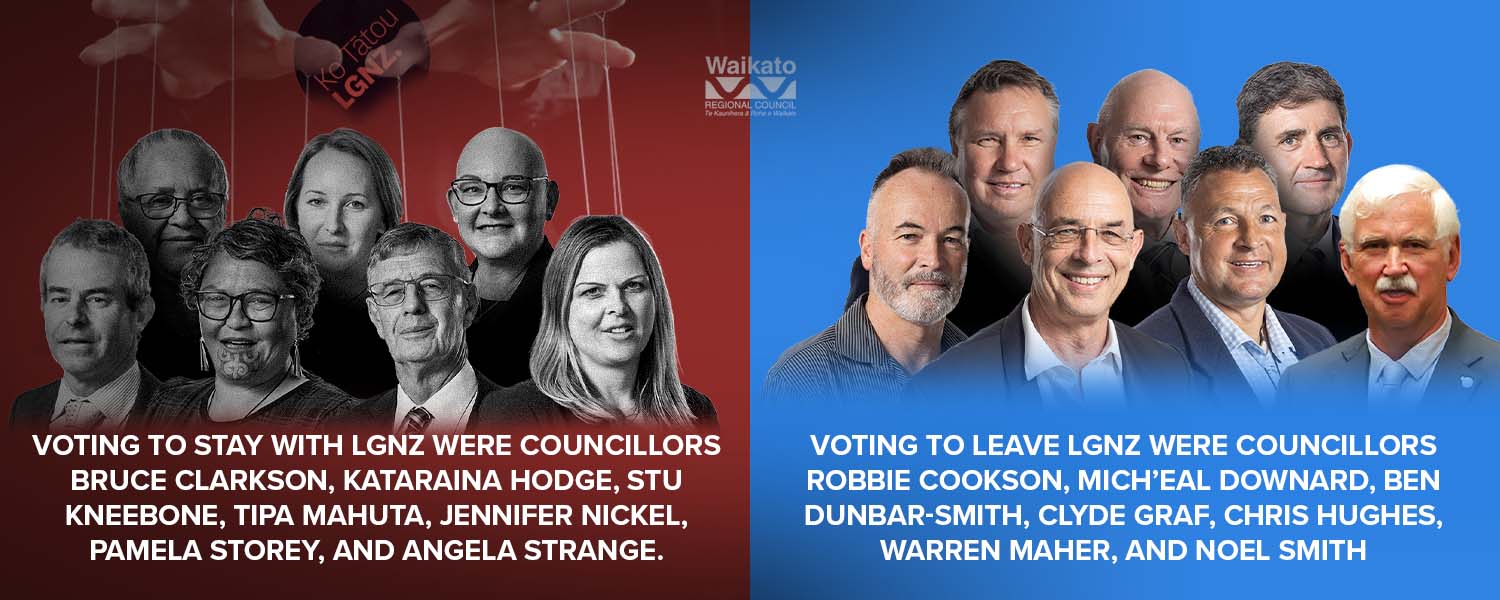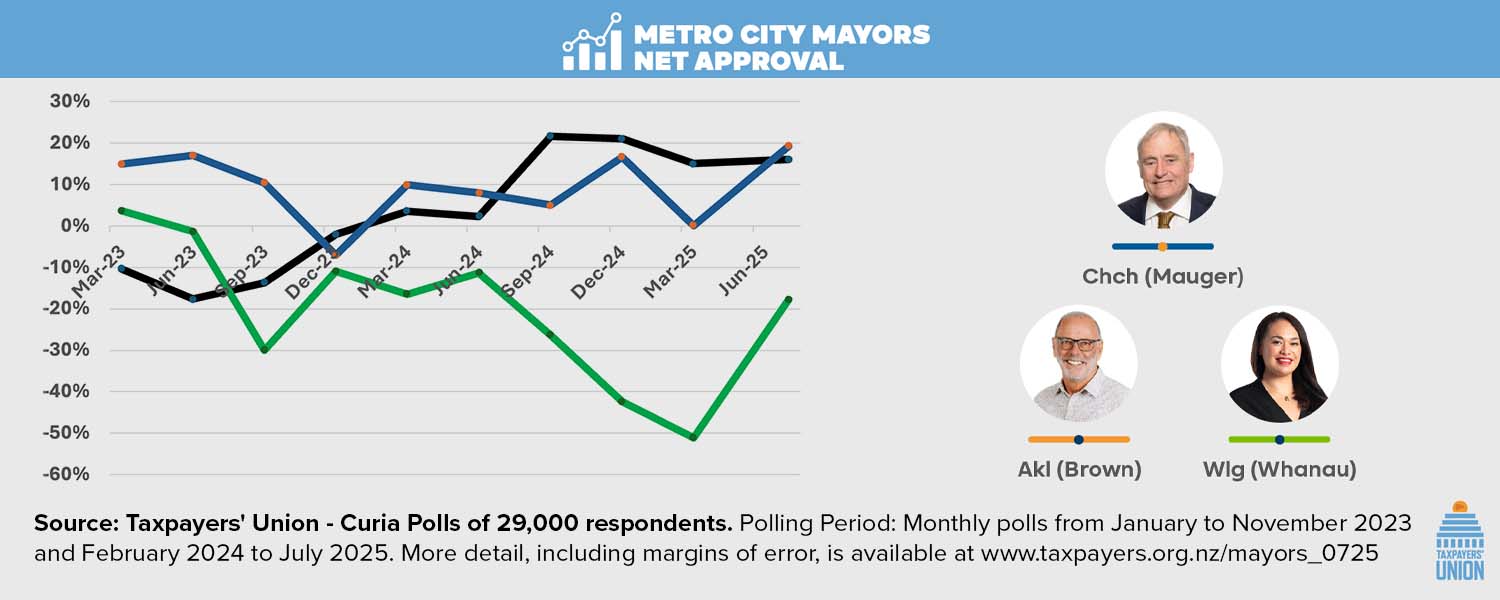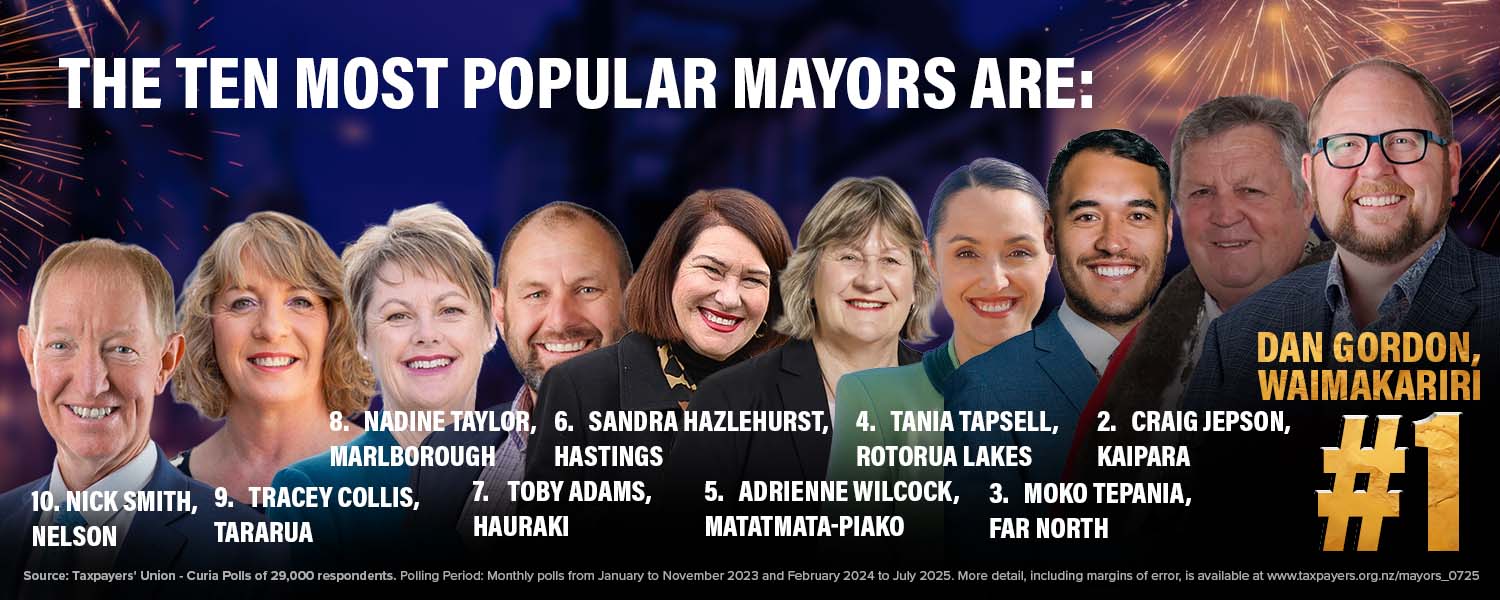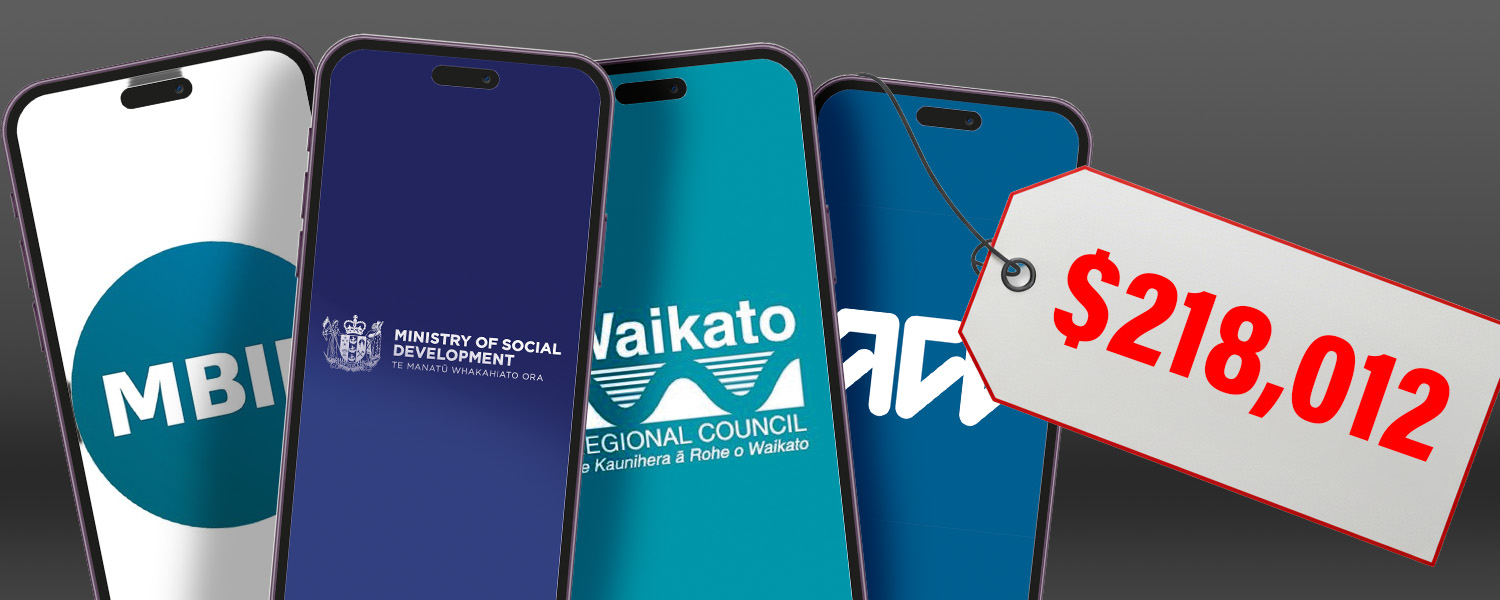|
📌 View
Online | 🚀 Share
on Facebook
Hi Friend,
This week,
we reveal the nation’s most popular metro mayor (hint: it’s
not Wellington's Tory Whanau…), take a look at rising
inflation (sexy subject, we know) and expose the apps costing
you/taxpayers up to $18 per download.
Waikato
Ratepayers Stitched Up – Council Re-Joins LGNZ 😱💸
Just weeks after Waikato Regional Council voted to leave
the highly politicised Local Government New Zealand (LGNZ),
councillors have shamefully reversed course by voting to
rejoin the secretive, ratepayer-funded lobby
group.
LGNZ exists to promote the interests of councils (not ratepayers!),
is notorious for its misuse of ratepayers money to, well, opposing
ratepayer friendly policies, and enjoys a special carve-out
from freedom of information laws. It literally spends millions
of ratepayer money lobbying for even more power and cash for local
government bureaucrats.
Earlier this month, Waikato Regional Council voted to walk away
from LGNZ’s $122,000 annual bill – citing its “lack of relevance” and
“left-wing activism”. But pro-LGNZ councillors, led by Cr
Stuart Kneebone, didn’t like losing.
Cr Kneebone, along with none other than Nanaia Mahuta's sister (who
seems to have slept
through errr, missed the first vote – even though it
appears she was at the relevant meeting), forced a second go.
This week's re-vote ended in a 7–7 tie. Ordinarily, that would mean
the status quo stands – i.e. the Council remains
out. But in a disgraceful move, Council Chair Pamela Storey
(a former LGNZ insider!) used her casting vote to overrule the
previous decision and force the re-join.
Storey’s excuse? That because the Council used to be a
member, the “status quo” meant re-joining – even though it had
already voted to leave!
You couldn't make up the skulduggery.
This kind of grubby politics is exactly why LGNZ’s
credibility is shot – and why ratepayers are fed up.

We’re not letting this go. These councillors have handed LGNZ a
victory (and six figures) – so we’ll be reminding Waikato locals which
politicians sided with Wellington’s lobbyists over their own
communities at this year's elections.
📣 Help
us hold them to account – donate to the Local Government Fighting
Fund.
The nation’s favourite mayors revealed
⭐️
Major City results: Christchurch's "Mr Rates Caps" Mauger
comes out on top 😇
Christchurch City Mayor Phil Mauger has taken the top
spot as the country’s most popular metropolitan mayor – after a
massive 19 point surge this quarter according to polling commissioned
by the Taxpayers' Union.

Is it a
coincidence that the surge came after Mayor Phil publicly backed rates
capping? We think not.
Ratepayers
are more conscious than ever that their community leaders have a
direct impact on how much money is left in their pockets each
week.
All in all, everyone's a winner this poll (if you’re a
metro mayor) 🥳
Looking
outside of Christchurch, Auckland’s Mayor Wayne Brown remains steadily well-liked, no
doubt thanks to the fourth-lowest rates hikes in the country over the
last three years.
And even
Tory Whanau has seen a boost to her approval rating since announcing
she'd step aside. No comment needed... 👀
Mayoral approval for the rest of New Zealand - who's
popular, who's not? 🤔
Waimakariri's Dan Gordon tops the
overall polls this time, with a net approval rating of 41 percent.
Kaipara's Craig Jepson (+35 percent) and Far
North's Moko Tepania (+34 percent) follow closely behind in
second and third.

Eight of
the top ten favourite mayors lead councils with single-figure rates
increases this year.
On the
flipside, seven of the least popular mayors' councils have had
above-average rates rises this term. As the cost-of-living crisis
keeps biting, that shouldn't be a surprise.
Friend, our advice is that any candidate looking
to boost their appeal going into this year’s local election might do
well to follow the likes of Phil Mauger and Dan Gordon’s examples by
putting ratepayers' needs front-and-centre.
Groundhog Day: Inflation pushed up by rates (again)
📈
It is no
surprise that low-rates mayors are consistently higher in our
polling.
New
inflation data this week revealed that the 2.7 percent annual
inflation rate was pushed up by rates hikes, as revealed this week by
Stats NZ.
This isn’t
a new phenomenon, Friend.
Last year,
more than half of the Q3 inflation spoke came from council rates
alone. And with more rates hikes kicking in this month, we’d expect
more inflation pain next quarter too.
It’s a
vicious cycle. Councils hike rates, that drives up inflation, which
delays interest rate cuts, and households get squeezed from both
ends.
The message is clear, Friend: councils won’t stop unless
they’re made to. Capping rates is no longer just a nice idea, it’s
essential if we want to get inflation down and take pressure off Kiwi
households.
That’s why, despite last week’s successes outside
the LGNZ conference, you’ll continue to see us push for rates caps
now. The battle is nearly over, but we can’t let councils win at the
eleventh hour.
EXPOSED: The Te Reo app free-for-all taking over
government 😱

The
Taxpayers' Union investigations team have been asking questions
about the raft of mobile apps owned and run by various government
departments and local councils.
Seven
different departments and councils spent a combined $218,012
developing their own separate Māori language and cultural training
apps – despite the existence of a national Māori Language Commission
and multiple taxpayer-funded training programmes already in
place.
And were
these apps wildly popular? The short answer – and one that really will
not surprise you – is: no.
In fact,
one such app, developed by Waikato Regional Council, cost more than
$35,000 and reached fewer than 2,000 people. That’s nearly $18 of
ratepayers’ money spent per user.
You can
read the various Official
Information Act responses here.
And these
are just the apps we know about, Friend. Imagine how many more are out
there that haven’t come
through our tip line!
What is
wrong with having a centralised platform for the public service
instead of a wasteful agency-by-agency approach? Or what about
departments focusing on core business, rather than trying to out-do
each other procuring apps for the same purpose as apps that already
exist. Would that really be so complicated?
As ever, thanks for your support Friend,

Have a
great weekend.
|